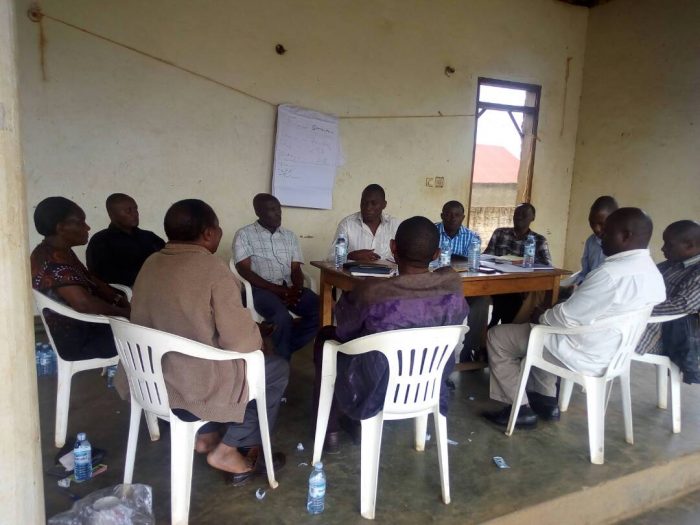
Why SACCOs don’t have to pay CORPORATE TAX in simple terms
by UCSCU Training Manager, Mr. Kyepa Andrew
SACCOs belong to a family of organizations called cooperatives; in most of the developed countries they take on the name of credit unions though the principles, values and business model remains the same across all divides.
According to the World Council of Credit Unions (WOCCU) 70% of the countries exempt SACCOs from taxes and these are the reasons;
1. Not for profit but for service organizations
SACCOs are formed not to build profits like banks and money lenders but to provide a needed service among members. For this reason, SACCOs terms and conditions for financial services make them affordable to the otherwise would be financially excluded. They take on high lending risk because most of the loans are unsecured.
2. The Members are the only source of funding
unlike other corporate entities like banks which can mobilize capital from the financial markets, SACCOs largely depend on contributions from members savings and at times due to liquidity challenges are forced to borrow to meet the demand for loans at very high interest rates. In this regard taxing the surplus of SACCOs is like taking away food stored for the next day from a family struggling to achieve food security. Our food security as SACCOs is the retained earnings; which is the only option to build capital to continue providing affordable services to members.
3. The members are the only customers.
While banks and other corporate entities have an open market; SACCOs are the only institutions that mobilize funds from members and give back these funds in form of loans to the same people that contributed to the fund; other cooperatives like Bugisu cooperative union has the opportunity of trading outside its membership but that can never happen in SACCOs. This nature of work can only survive if interest rates are kept low; funds are readily available when members apply for loans and reasonable reward is given to keep motivating savers.
The implication of a heavy tax burden on these institutions is that it collapses the business methodology and kills the motivation to belong to SACCOs. It takes the SACCOs to swim in the deep waters with banks but denies them the life jackets that banks put on; ultimately they will not survive but will drown.
It’s unfortunate that most of the legislators are being misinformed about SACCOs and leading them into a decision intended to wipe SACCOs away from the face of Uganda. Some of the proponents of this move argue that SACCOs will give a window for the rich to do banking business while untaxed.
This can never be true because there are regulations to ensure that such does not happen and if it ever happened then it requires refinement of the regulations but not punishing people who are trying to help themselves.
There have also been arguments that some SACCOs are too big not to pay taxes. The problem here is when people look at assets alone without taking note of the numbers contributing to those assets; while a bank may belong to two -50 owners according to the company law; a SACCO can belong to 100000 members and even when its total assets add up to 100 billion; it’s a “saving up” of averagely 1M over so many years of retaining their savings in the SACCO by the ten thousand members. This savings up of ordinary people will crumble down with these proposals of increasing their tax burden.
One of the SACCO board members being trained by UCSCU trainers.
Tax burden increases because they are already paying taxes from their incomes as individuals, stamp duty on the loans, local service tax to be allowed to cooperate and help themselves, their small dividends from their shares are taxed and interest earned on savings is taxed.
Its only corporate tax that keeps our identity as not for profit and member based organizations. If this is taken away; it will start a slow and painful death of SACCOs, painful because most of us have had the opportunity to receive education, educate our children and relatives, attend to very expensive medical care in this country, put up a place to call a family home and start alternative income generating projects which are paying taxes and employing Ugandans as well because we have our own financial institutions which can trust us, but also gives financial services on terms we can afford.
High taxes on SACCOs is not different from a family dying of hunger where members contribute towards preparing a meal, they buy posho and beans which are already taxed, use charcoal and water which is already taxed; cook, eat and leave some food for tomorrow; then the tax man comes and takes away their meal kept for tomorrow. This tax man would have condemned this family to abject hunger and eventual death.
PLEASE SAVE OUR SACCOS AND SAY NO TO CORPORATE TAX.

